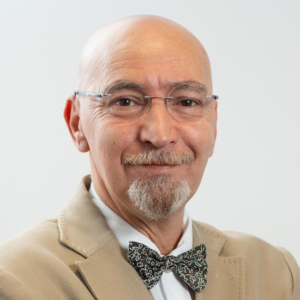- LOGIN
- REGISTER
Leveraging cultural diversity in the classroom
- 12:00 Hours
- Lisbon or online
- On site workshop or distance learning programme
- tba

Future generations will have to live and work in an wholly intercultural environment. Right now they already interact with fellow students from other countries and cultural backgrounds. This is particularly true in international schools with their broad range of nationalities among the student body, but it has also became a feature in regular public schools as a result of immigration.
Rather than a source of puzzlement and misunderstanding, this cultural diversity offers tremendous learning opportunities.
This workshop is intended for teachers and administrators dealing with any degree of cultural diversity who aspire to understand the “cultural codes” present in their classrooms in order to promote richer, deeper interactions between their students and help them develop the intercultural skills they will need throughout their lives.
It will also meet the needs of managers and HR professionals dealing with culturally diverse workforces.
At the end of this programme, you will will be able to decode and explain cultural differences and to employ practical skills to help students (or corporate staff) recognize and interpret culture-charged behaviours and learn how to respect and adjust to cultural diversity.
National cultures and their origins: “human universals” and 6 basic dilemmas present in every society; values, norms, behaviours and artefacts. Cultural intelligence.
Hoftede’s 6 dimensions of “mental software”; self-assessment and comparison with average scores for the participant’s country of origin.
Anticipating and dealing with cultural shock.
Consequences of cultural differences for interpersonal relationships, communication, teamwork and leadership.
Consequences of cultural differences for the teacher-student relationship.
Effective communication strategies as a function of the cultural context.
Practical application in student-student and teacher-student relationships
This is a dynamic and interactive distance learning workshop delivered in 4 x 2:30 hour sessions combining synchronous and asynchronous coursework.
In addition to exploring the robust scientific framework developed by Prof. Hofstede, you will have an opportunity to take part in games and group discussions, view and discuss short videos and case studies and discover your cultural preferencies through self-diagnosing questionnaires.
Participants will be able to track their progress by taking initial and final self-assessment surveys (Brinkerhoff’s Success Case Method).
A small amount of asynchronous work – e.g. reading cases, watching short videos, filling self-assessment forms – should be expected between online sessions.

Paulo Finuras is an Associate Professor (Organisational Behaviour) and an Associate Partner and Accredited Lecturer with Hofstede Insights – the international organization that continues Prof. Hofstede’s research and teaching on national cultures and intercultural relations.
Paulo has a PhD in Social and Behavioural Science and an MBA in Global Management and International Politics. Throughout his career, he has worked with more than 40 national and international organisations in 16 countries all over the world. He is an invited lecturer on Intercultural Management in UEFA’s training programme for football coaches.
Throughout his career, Paulo has authored 11 books on Cross-cultural Relationships and Evolutionary Psychology.
On site workshops will be held in Lisbon or Cascais (Greater Lisbon Area), Portugal.
The exact location, as well as accommodation options, will be announced in due course.
650 € per participant, inclusive of materials in soft copy and certificate.
Dates for the 2022-2023 school year will be announced shortly.